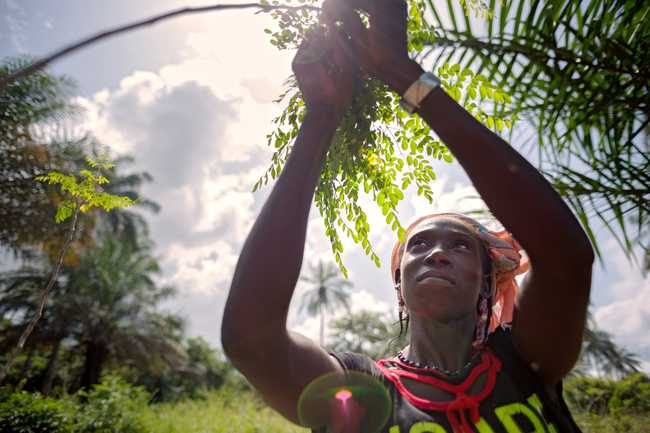Too hot to work: temperature rise linked to deforestation likely to affect working conditions in the Tropics

High-profile pledges made at the recent UN Climate Change Conference COP26 in Glasgow haven’t come a moment too soon for communities on the front lines of forest loss, new study finds
Read more
Related articles for further reading
Deforestation-fuelled heat is making work increasingly intolerable for millions across the Tropics. This is the conclusion of a new study authored by a multidisciplinary team from Duke University, the University of Washington, and The Nature Conservancy and published by the journal One Earth that highlights the extent to which local temperature rises in the world’s tropics – compounded by accelerating deforestation – are already jeopardising the wellbeing and productivity of outdoor workers.
According to the authors, warming associated with recent deforestation (between 2003-2018) has increased heat exposure for 4.9 million people globally, including 2.8 million outdoor workers.
Decreases in safe working hours were found to be particularly significant in deforested areas, compared with regions where the majority of tropical forest remains intact.
Senior co-author Nick Wolff from The Nature Conservancy stated: “We already knew that tropical deforestation is associated with localised temperature rises, but given the accelerating warming being experienced across the planet, we’re calling for an urgent redoubling of research into how these changes are impacting vulnerable human populations across the Tropics. The various commitments to halting and reversing deforestation that came out of Glasgow were just a start – now we need to see this goodwill rapidly converting into tangible action on the ground.”
The study also highlights disproportionate heat exposure for populations working in parts of Brazil – warning that future global warming projections, compounded by unchecked forest loss, will only exacerbate this situation. In the states of Mato Grosso and Pará, for example – even in the unlikely event of no further deforestation or population growth – the study projects that future global warming of +2°C relative to the present could see more than a quarter of a million people lose two further hours of safe working time per day compared with 2003.
Commenting on the study’s significance, lead author Luke Parsons of Duke University – who led much of the research while in his previous role at the University of Washington – said: “Our findings highlight the vital role tropical forests play in effectively providing natural air-conditioning services for populations vulnerable to climate change – given these are typically regions where outdoor work tends to be the only option for many, and where workers don’t have the luxury of retiring to air-conditioned offices whenever the temperature rises to intolerable levels.”